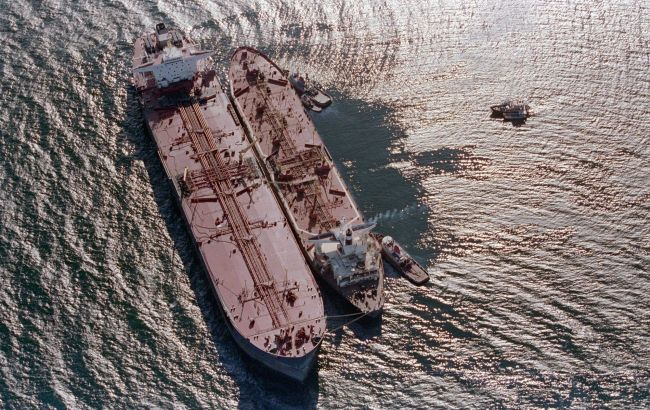US sanctions again halt Russian oil shipments, Bloomberg
 Illustrative photo (Photo: Getty Images)
Illustrative photo (Photo: Getty Images)
Two oil tankers ceased operations off the coast of Greece just days after the US imposed new sanctions on 14 Russian ships, reports Bloomberg.
The material specifies that this is another sign of how the tightening of Western measures undermines the oil trade in Russia.
According to vessel tracking data compiled by Bloomberg, the NS Creation and Gulf Amur have declined to engage in the so-called transshipment of oil cargoes they were carrying in the Laconian Bay, a waterway south of Greece.
"This isn’t the first time that ships involved in Russia’s oil trade have maneuvered oddly soon after being sanctioned," Bloomberg writes.
Earlier, one tanker almost immediately turned around after being listed on the sanctions list earlier this month, and almost all those against whom sanctions were imposed at the end of last year or in early 2024.
Tankers linked to Russia
The NS Creation and Gulf Amur met just hours before the US Treasury Department announced a new round of sanctions targeting vessels transporting Russian oil.
Both belong to the Russian Sovcomflot, but only the NS Creation is listed by the Treasury. Earlier this month, the Gulf of Amur accepted about 730,000 barrels of flagship Russian Urals crude at the Baltic port of Primorsk.
Sanctions against Russia's oil industry
Last year, the Group of Seven countries, the EU, and Australia imposed a price cap on Russian seaborne crude at $60 per barrel. Similar restrictions on supplies of petroleum products from Russia have been in place since February 5, 2023.
Western sanctions have resulted in half of Russia's oil and oil product exports going to China in 2023, while India's share has increased to 40% in two years. Europe's share in oil exports from Russia has fallen tenfold to approximately 4-5%.
Recently, the US Treasury Department imposed sanctions on the leading Russian tanker group Sovcomflot. The decision is aimed at reducing Russia's income from oil sales, which it could use to support the invasion of Ukraine.

